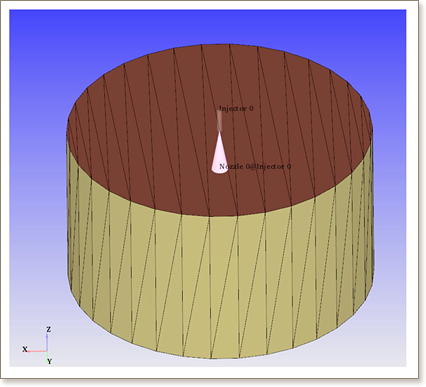On the effects of fuel properties and injection timing in partially premixed compression ignition of low octane fuels


A better understanding on the effects of fuel properties and injection timing is required to improve the performance of advanced engines based on low temperature combustion concepts. In this work, an experimental and computational study was conducted to investigate the effects of physical and chemical kinetic properties of low octane fuels and their surrogates in partially premixed compression ignition (PPCI) engines. The main objective was to identify the relative importance of physical versus chemical kinetic properties in predicting practical fuel combustion behavior across a range of injection timings. Two fuel/surrogate pairs were chosen for comparison: light naphtha (LN) versus the primary reference fuel (PRF) with research octane number of 65 (PRF 65), and FACE (fuels for advanced combustion engines) I gasoline versus PRF 70. Two sets of parametric studies were conducted: the first varied the amount of injected fuel mass at different injection timings to match a fixed combustion phasing, and the second maintained the same injected fuel mass at each injection timing to assess resulting combustion phasing changes. Full-cycle computational fluid dynamic engine simulations were conducted by accounting for differences in the physical properties of the original and surrogate fuels, while employing identical chemical kinetics. The simulations were found to capture trends observed in the experiments, while providing details on spatial mixing and chemical reactivity for different fuels and injection timings. It was found that differences in physical properties become increasingly important as injection timing was progressively delayed from premixed conditions, and this was rationalized by analysis of mixture stratification patterns resulting from injection of fuels with different physical properties. The results suggest that accurate descriptions of both physical and chemical behavior of fuels are critical in predictive simulations of PPCI engines for a wide range of injection timings.
DOI:10.1016/j.fuel.2017.06.048

"KAUST shall be a beacon for peace, hope and reconciliation, and shall serve the people of the Kingdom and the world."
King Abdullah bin Abdulaziz Al Saud, 1924 – 2015
Thuwal 23955-6900, Kingdom of Saudi Arabia
© King Abdullah University of Science and Technology. All rights reserved